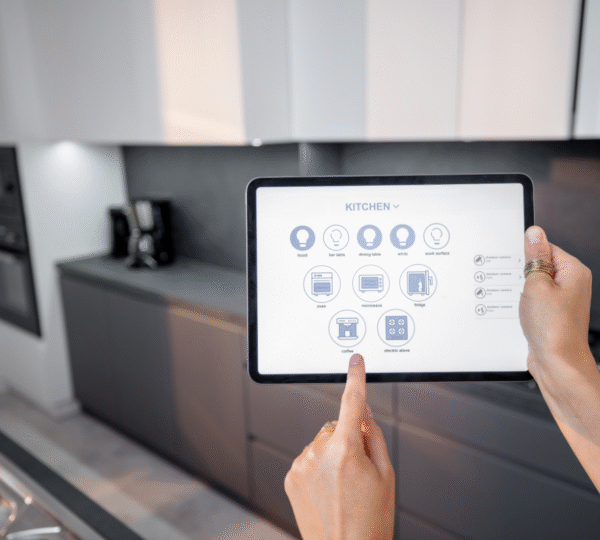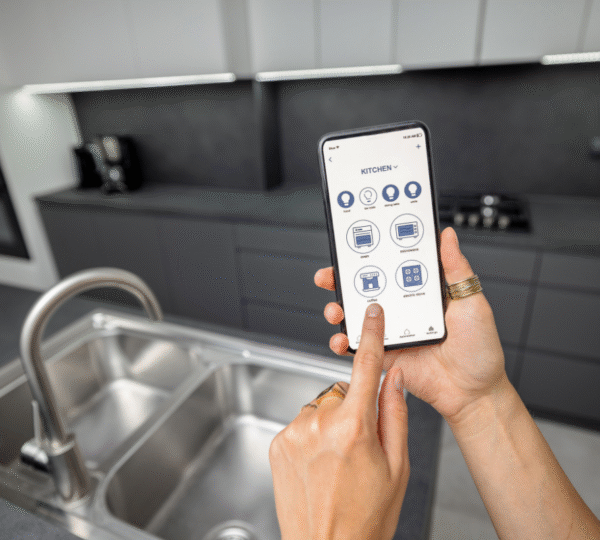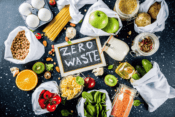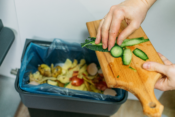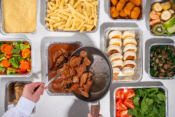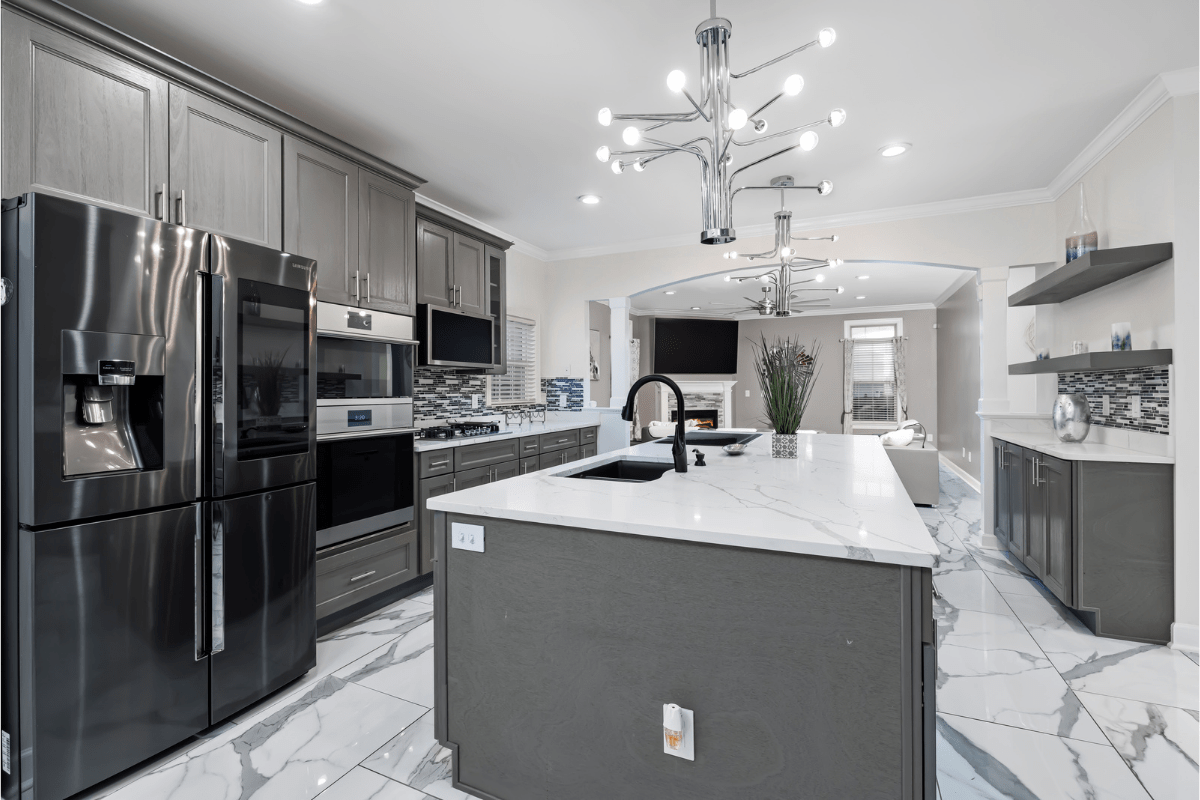
AI-enhanced cooking tools
Emma loved cooking, but after a long day of work, she often found herself staring at her fridge, unsure of what to make. She wanted healthy meals but lacked the energy to plan. One evening, she discovered an AI-powered cooking assistant built into her smart oven. All she had to do was tell the oven what ingredients she had, and it suggested recipes, preheated itself, and even adjusted cooking times for her dish.
For the first time, Emma felt like cooking was not a chore but a guided experience. She had a kitchen assistant who knew her tastes, adjusted for her dietary preferences, and even prevented her food from burning. What once felt overwhelming became fun, creative, and effortless.
Emma’s story is becoming more common as AI-enhanced cooking tools redefine how people approach food preparation.
What Are AI-Enhanced Cooking Tools?
AI-enhanced cooking tools are smart appliances and applications that use artificial intelligence to simplify and improve cooking. They can:
- Recommend recipes based on available ingredients
- Adjust cooking times and temperatures automatically
- Provide voice-guided instructions
- Track nutritional content of meals
- Learn user preferences for personalized suggestions
- Integrate with shopping apps for grocery lists
From smart ovens to AI recipe apps, these tools bring restaurant-level precision into home kitchens.
Fun Fact: In 2023, researchers at Google created an AI-powered “electronic nose” that can identify food freshness by analyzing odors more accurately than human testers. Imagine a future where your fridge tells you if your milk is still safe to drink.
Examples of AI-Enhanced Cooking Tools
1. AI-Powered Smart Ovens
Brands like June Oven and Tovala use AI to recognize the food placed inside. They automatically set cooking modes and send alerts to your phone when the food is ready.
Tip: Use AI ovens for multi-dish cooking. They can monitor different foods simultaneously and adjust settings so everything finishes at the same time.
2. AI Recipe Apps
Apps like Whisk, SideChef, and Spoonacular suggest meals based on ingredients you have at home. Some even integrate with voice assistants so you can cook hands-free.
Expert View: Nutritionist Dr. Rachel Paul says, “AI recipe apps reduce food waste significantly by encouraging people to use what they already own rather than buying unnecessary items.”
3. AI Smart Scales and Thermometers
Smart kitchen scales like Perfect Bake Pro measure ingredients while AI apps calculate nutritional values. Thermometers like MEATER+ use AI to predict cooking times and prevent overcooking.
Fun Fact: AI meat thermometers can predict doneness within of 2 minutes, something even professional chefs find challenging.
4. Voice-Assisted Cooking Devices
Alexa and Google Home now integrate with smart appliances, guiding users through recipes step by step. Some tools even pause instructions if you say “wait” while chopping or preparing.
5. AI-Powered Meal Planners
Platforms like EatLove create weekly meal plans based on personal goals like weight loss, low-carb diets, or plant-based eating. They automatically generate grocery lists and portion sizes.
Tips for Maximizing AI in the Kitchen
- Start Small: Try an AI recipe app before investing in smart appliances. This lets you ease into AI cooking.
- Connect Your Devices: Sync your smart oven, fridge, and assistant app for a seamless kitchen experience.
- Use Ingredient Recognition: Upload pictures of your pantry to AI apps. This helps them suggest recipes that save money and reduce waste.
- Experiment with Diet Tracking
Use AI scales and apps to analyze calories and nutrients if you have fitness or health goals. - Combine AI with Creativity: Let AI handle the technical parts like timing and measuring, but enjoy adding your personal flair with spices and presentation.
Fun Facts
- The AI-powered June Oven recognizes over 200 different foods instantly.
- AI coffee makers now adjust brew strength based on your sleep data from wearable devices.
- Samsung’s AI-powered fridge can suggest recipes and even order groceries online.
- A study by FoodTech Magazine found that households using AI cooking tools reduced weekly food waste by 35 percent.
Experts’ insight
- Chef David Chang: “AI tools will not replace chefs, but they will make cooking more approachable for people who lack confidence in the kitchen.”
- Dr. Susan Schneider, food scientist: “AI can help balance nutrition better than manual tracking, making it a key tool in fighting lifestyle diseases.”
- Tech analyst Sarah Johnson: “The kitchen is becoming one of the most AI-integrated spaces in the home, second only to entertainment.”
Addressing Concerns
Concern 1: Does AI Kill Creativity?
AI gives structure but still allows you to add personal creativity. Think of it as a sous chef, not a replacement.
Concern 2: Are AI Appliances Too Expensive?
While some tools are costly, apps and entry-level devices are affordable and provide immediate value. Costs are expected to drop as technology advances.
Concern 3: What About Data Privacy?
Many apps collect dietary data. It is important to choose tools with transparent privacy policies. Opt out of sharing with third parties when possible.
Real Life Success Stories
- Liam from Toronto used an AI meal planner to manage his diabetes diet. Within months, he had improved his blood sugar levels while enjoying meals he loved.
- Aisha from Dubai reduced food waste by half when her AI fridge reminded her of items about to expire and suggested recipes.
- Carlos from Madrid became more confident cooking for his family when his AI oven guided him step by step.
The Future of AI in Cooking
Future kitchens may include robotic arms powered by AI to assist with chopping and stirring. AI may also integrate with health apps to recommend meals that balance micro-nutrients in real time. Imagine a kitchen where your smartwatch signals low energy and your AI suggests a protein-packed snack within seconds.
According to Deloitte’s 2024 FoodTech Report, AI will move beyond convenience into health optimization, creating a future where cooking is both enjoyable and personalized.
Conclusion
AI-enhanced cooking tools are transforming kitchens from stressful spaces into supportive environments. They help people save time, reduce waste, cook healthier meals, and gain confidence in the kitchen. From smart ovens that recognize food to AI apps that personalize diets, these tools provide a balance of guidance and creativity.
While AI will not replace the joy of cooking or the artistry of chefs, it will make meal preparation more accessible and efficient for everyday people. The key is to embrace AI as a partner, using it to simplify the technical aspects while leaving room for personal expression.
As adoption grows, AI-enhanced cooking tools will not only change how we cook but also how we connect with food, health, and sustainability. For busy individuals and curious home chefs alike, the future of cooking is looking smarter and more delicious.
References
- Google AI Research (2023).
- Deloitte. (2024).
- FoodTech Magazine. (2022).
- American Diabetes Association. (2023).
- Johnson, S. (2024).

